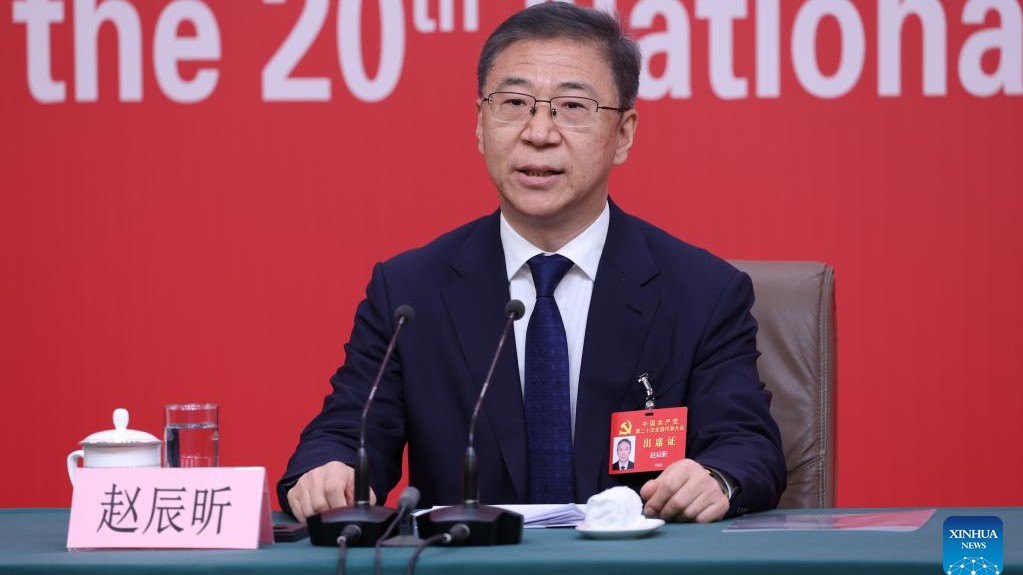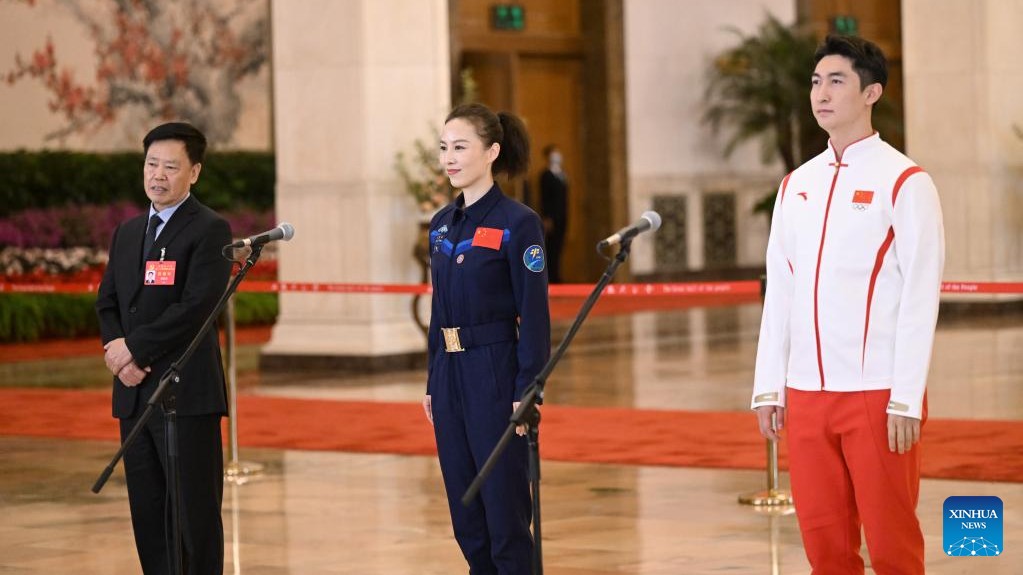The 17th press conference on Xinjiang related issues was held on November 13, 2020. The press conference invited Abudou Wa’ersi Maitusong from Lop County of Hotan Prefecture, Amina Wubuli from Yutian County of Hotan Prefecture, Xiaili Maimaitimin from Moyu County of Hotan Prefecture, Ajinisa Rejiepu from Hotan City of Hotan Prefecture, Halidan Abudilimu from Turpan City, Rouziwake Juma from Moyu County of Hotan Prefecture and Hanmudu Maimaiti from Shanshan County of Turpan City, to answer questions from the press.
Host of press conference: Deputy Head of the Publicity Department of the CPC Xinjiang Committee Xu Guixiang
Xu Guixiang: Dear friends from the press, good morning. Welcome to the press conference on Xinjiang-related issues.
Today, we are very happy to have several ethnic migrant workers and entrepreneurs to be present at the press conference. They are Abudou Wa’ersi Maitusong from Lop County of Hotan Prefecture, Amina Wubuli from Yutian County of Hotan Prefecture, Xiaili Maimaitimin from Moyu County of Hotan Prefecture, Ajinisa Rejiepu from Hotan City of Hotan Prefecture, Halidan Abudilimu from Turpan City, Rouziwake Juma from Moyu County of Hotan Prefecture and Hanmudu Maimaiti from Shanshan County of Turpan City.
We would like to invite them to share their experiences of migrant work and how they started their own business, as well as their current work and life. Journalists are welcome to communicate with them.
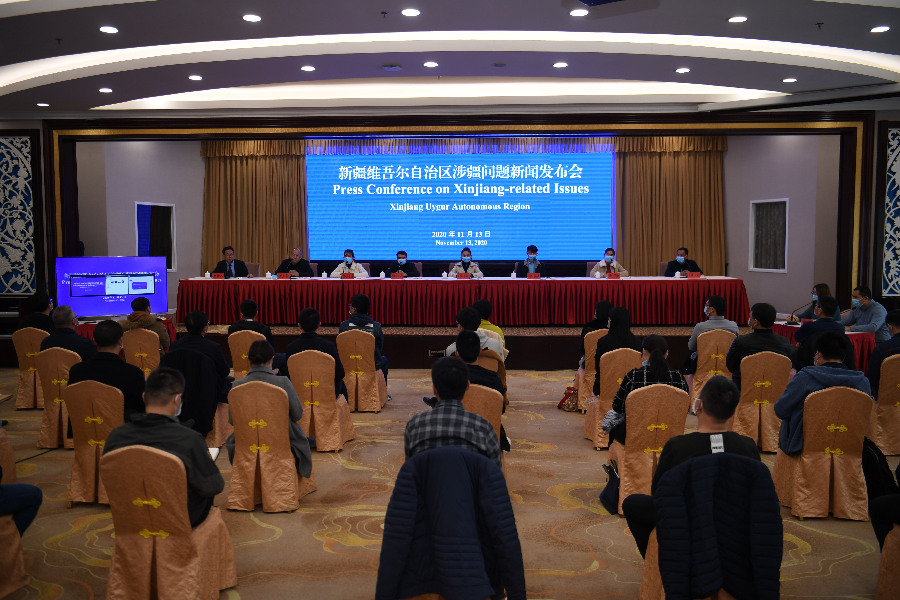
Photo taken on November 13, 2020 shows the press conference.
Xinhua: Thank you, the host. I am from the Xinhua news agnecy. The overseas media and institutions reported that there is “slave labor” in Xinjiang and many rural surplus labor forces have been forced to leave their hometown and work in cities. Is that true? I am wondering whether they are willing to leave their hometown to work in cities. Thank you.
Xu Guixiang: This question goes to the migrant worker Halidan Abudilimu from Turpan City.
A: My name is Halidan Abudilimu. I’m from Zhuangzi Village, Aidinghu Town, Turpan and I’m working for a hotel in Turpan now.
After graduating from the senior high school, I didn’t make it to college but came back home, helping my family with the farm work. Later, I was married to a person in Zhuangzi Village, Aidinghu Town. At that time, the village was an impoverished village that was “known far and wide”. A majority of villagers were ideologically conservative. Seldom did they work outside the hometown. Most households made a living by farming. We were a family of eight, but we just had 6-mu (40-acre) vineyards and two vegetable greenhouses. The farmlands were too small for our large family. Our annual income was around RMB20,000 to RMB30,000, which could barely make the ends meet.
In order to live a better life, the village government taught us employment skills and encouraged us to work outside to increase our income and become rich. Meanwhile, job fairs were held to provide us with employment opportunities. At the end of 2016, my husband and I applied to work in the hotel. Around 44 youths together with us went to the city. We all wanted to take a look at the city and make more money to create a better life for our family members.
As a new staff in the hotel, I took part in a two-month professional training. After that, I was distributed to the hotel’s catering department, while my husband was distributed to the security guard department. I gained high recognition from the company manager because of my proficiency in Chinese as well as of my careful attitude towards work. After two months, I got promoted as the senior waitress, and was designated to Urumqi to learn coffee making. After that, I was designated to be the bar attendant in the lobby. Meanwhile, the company also sent me to Sanya, Hainan, and Changsha, Hunan to learn hospitality management experience. I was glad that I could have these learning opportunities. Through training, not only did I broaden my horizons, but I also became more skilled in my post. Currently, I am very satisfied with my job. I would redouble my efforts in the future to realize my goal to be the lobby manager.
As we have been working elsewhere these years, our life has experienced earthshaking changes. With the help of community cadres, we have applied for the public rental housing and moved in one. Every month, we just need to pay RMB150. The house is spacious and large, warm in winter and cool in summer, and the community environment is good. Currently, my husband and I earn RMB7,000 a month. Annually, we earn more than RMB80,000. This has been the income of our farming over the past three years. We plan to buy one house in the urban area and one car so that we can take our family out for traveling. This year, my son is studying in the urban area, receiving good education free of charge. I would bring up my child well, affording him to pursue the undergraduate degree, postgraduate degree and even PhD degree. Then, he can make contributions to our country.
Now, we have been living in the city. All that we have was beyond imagination to us in the past. If there was indeed the slave labor in Xinjiang, could we lead such a good life today? If the foreign report that the surplus rural labor was forced to leave their hometown to work in cities was true, why would we willing to stay in the city? Just now, the reporter asked us whether we were willing to work in the urban areas, my answer was of course yes, so did many young people. Currently, many villagers from Zhuangzi Village, Aidinghu Town have been working elsewhere, some of whom even become the bosses themselves. Our life has been prospering, so the answer is self-evident.
Xu Guixiang: Thank you for your answer, Halidan Abudilimu. Please go ahead to raise questions, media friends.
Xinjiang Station of China National Radio: Thank you, the host. I am from the Xinjiang Station of China National Radio. The overseas media reported that Xinjiang forced national minorities to transfer employment. If they rejected participation, they would be punished. Is that true?
Xu Guixiang: This question goes to the migrant worker Abudou Wa’ersi Maitusong from Lop County of Hotan Prefecture.
A: My name is Abudou Wa’ersi Maitusong from Lop County, Hotan Prefecture. Currently, I am working in a construction company in Urumqi, where my monthly salary is RMB4,500 per month.
At the very beginning of this year, I saw the recruitment information of a construction company in Urumqi. I was interested in this job and it was very suitable for me. Therefore, I applied to the post and signed the labor contract with the enterprise. Here, I have got acquainted with many friends, who came to the company like me via recruitment. Some colleagues came here earlier than me. Never have I heard that anyone come here by force.
I am very excited about my job in this company. The company’s environment and working conditions are favorable. There is a halal restaurant, which provides dishes much more delicious than those in my house. The company also offers comfortable accommodation. We are fond of the working and living environment. When we are off work, we would hang out together. There are many entertainment places in Urumqi.
One month ago, I came back home to reunite with my family members. They all say that I have become more fashionable and outgoing and also make more money. They keep on praising me. I am so happy. I will go on working here hard, learning more techniques. When I had enough money one day, I would go back home to start a decoration company so that my family members could lead a better life.
Unlike the foreign media saying that we are forced to work outside, we work outside fully of our own accord. It is silly to say that someone is forced to make money and to learn more skills to change our life by us. They are talking nonsense that “rejection of participation in employment will be punished”. To work or not is something to do with us rather than a punishment from the government.
Xu Guixiang: Thank you for your answer, Abudou Wa’ersi Maitusong. Please go ahead to raise questions.
Xinjiang Daily: Thank you, the host. I am from the Xinjiang Daily. Could migrant workers from South Xinjiang share with us how they find their job? Have you signed the labor contract with the employer? Thank you.
Xu Guixiang: This question goes to the migrant worker Amina Wubuli from Yutian County of Hotan Prefecture.
A: My name is Amina Wubuli from Yutian County, Hotan Prefecture. Currently, I am working at a company in Changji.
I am the youngest in my family. Both my parents dote on me. After graduation, my parents did not ask me to work outside. One day, one of my friends came back and invited me to her home. She saw that I did not go to work, so she persuaded me to work together with her. She said that her current work was fantastic, which earned her RMB4,000 to RMB5,000 a month. She hoped that I could consider her request. Without discussing with my parents, I rejected her indirectly. But after all friends around me went to work outside subsequently, leaving me alone in the hometown, I realized that I should do something. Once, I went to the village committee to handle something. Then, I unwittingly saw a recruitment advertisement, which was quite suitable for me. So I signed up for the post. Luckily, I got recruited. At that time, I signed a two-year labor contract with the company.
The moment I left my hometown, I felt very excited, because I had never left home and gone to a metropolis. Everything was so fresh to me. Our company purchased the medical insurance, unemployment insurance and occupational injury insurance for me. There is also a halal canteen here, which provides delicious foods. There is pilaf, mutton boiled in clear soup, etc. I am fond of dining in the company canteen. The accommodation conditions are favorable, which are fully furnished with living facilities. The company also has the gym and entertainment room. After office hours, I can take exercises, sing and dance. What a comfortable life!
To tell the truth, I am grateful to the company for providing such favorable working and living conditions for us, which allow me to experience the life in the city. This job is particularly suitable for me. I am willing to stay in the company all the time.
Xu Guixiang: Thank you for your answer, Amina Wubuli. Please go ahead to raise questions.
China Daily: Good morning, the host. I am from the China Daily. In recent years, Xinjiang has been stepping up its efforts in implementing the project that benefits people with more job opportunities. Could they share with us how the government helped them land a job or start up businesses? Thank you.
Xu Guixiang: This question goes to the self-employed Hanmudu Maimaiti from Shanshan County of Turpan City.
A: My name is Hanmudu Maimaiti. I am from Xingfu Village, Tuyugou Town, Shanshan County, Turpan. I lived on planting grapes before I started up my business. Although my family was well-off, I’ve been always dreaming about starting up my own business. Back then, my village only had one coal plant and villagers needed to wait in line for several days to buy coals. So I decided to set up a small coal plant in the village.
To set up a coal plant, I needed to handle site procedures first. However, I knew nothing about it. So I went to the village committee for help. They were supportive and the secretary of the village Party branch led staffs to survey and plan in the daytime and helped me make planning and design drawing. They also helped me complete land use procedures. With their help, I handled coal plant land use certificate smoothly and obtained the usage right of 9-mu land at the foot of the Mountain of Flames. The rent was quite low. I was more confident about the business start-up. I worked around the clock and learned experience around after setting up the coal plant. For the first year, I earned over RMB50,000 and my wife and I were both excited.
The business of coal plant went well in winter but we lost some businesses in summer. Then I bought an extractor with my savings and soft loans from the government with my skill of operating extractors. In the summer, I got some projects and paid off my debts from the bank after one year. Later, I bought another extractor with loans so that I got more works and higher salaries.
Later, with the expansion of coal plant and increase of mechanical vehicles, I needed some extra hands. But I got limited information resources and found it hard to employ personnel that can drive extractor and forklift. I felt anxious that the opportunities for earning money would slip away. After learning about this situation, the director of the village committee helped me publish recruitment information and contact some personnel. In this way, I got 12 staffs who helped me transport coal in winter and drive extractors and forklifts in summer. Then my recruitment problem was solved and villagers landed jobs and had stable income. I felt proud to be a boss.
Now, I have a happy family and good living conditions. This is the new life created by labor. Down the road, I will redouble my efforts and run coal plants and mechanical fleets, continue to expand scale and strive to lead more people to have a better life.
Xu Guixiang: Thank you for your answer, Hanmudu Maimaiti. Please go ahead to raise questions.
CNS: Thank you, the host. I am from the CNS. Overseas media said that the workers of ethnic groups in Xinjiang “had no freedom”, “had poor working and living conditions” in factories. Could we have them to talk about the accommodation conditions, living environment, rest and vacation during their work for enterprises?
Xu Guixiang: This question goes to Xiaili Maimaitimin from Moyu County of Hotan Prefecture.
A: My name is Xiaili Maimaitimin. I’m 28 years old and a native of Moyu County, Hotan Prefecture. Now I’m working for a clothing company in Ili with a monthly salary of over RMB4000.
I was born in Moyu County. After graduating from school, I did farm work and raised sheep in my hometown. Usually, I did part-time jobs with low income. In 2017, my friends who often went outside the county for work persuaded me to go outside of the county and see the outside world. They told me that as long as I work hard, I will definitely have a better life. I was into it after hearing these words. In fact, my wife and I desired to earn money and see the outside world.
In June 2017, the village committee posted the information of recruitment. My wife and I found one clothing company suitable for us. We were hired by the company and the boss cared for us and arranged spouse house specially for us as we were spouse workers. The two-bedroom house was available with furniture. My wife and I liked the house. The company set up halal canteen for us and specially hired Uyghur cook to cook for us. They offered three meals a day from Monday to Friday with rich varieties including ramen, pilaf, thin-skinned steamed buns, etc. During rest days on Saturday and Sunday, we often hanged out, went shopping, went to see a film and had delicious food with friends. I love Ili where the climate is humid and people are enthusiastic and hospitable.
When I was working for the company, I was dedicated to my job. I studied while working and gradually became the backbone of the company. Currently, I’m the shift leader of the company and I’m glad that I have more and more savings. I will continue to work hard and earn more to live a better life.
When I visited my parents in Hotan during vacation, I heard that the government encouraged us to start up businesses and will grant us soft start-up loans. I was very happy and thought of setting up a garment factory in my hometown when I meet the conditions to realize my dream of being a boss.
Some foreign media said that we “had no freedom in the factory and had poor living condition during work”. As a migrant worker, I find it ridiculous. I had some questions for those who spread rumors. Have you visited our factory, have you had dinner with us? Do you have any idea what we love to do during vacation? Truth will not be covered by lies and I will work with the big family and cherish the hard-won happy life.
Xu Guixiang: Thank you for your answer, Xiaili Maimaitimin. Please go ahead to raise questions, media friends.
CGTN: Thank you, the host. I am from the CGTN. Some foreigners said that Xinjiang, through setting up the factory with nursery, split up Muslim family and separated families. Could they share their opinions on this?
Xu Guixiang: This question goes to the migrant worker Ajinisa Rejiepu from Hotan City of Hotan Prefecture.
A: My name is Ajinisa Rejiepu and I’m from Hotan. Now I work for a factory in the village. Some foreigners said that Xinjiang set nursery in the factory and split up Muslim families. These people have never visited the nursery and never contacted us. They had no idea about the real situation and they were talking nonsense.
I’m a mom of two children and work for the factory. I know more about the situation of the nursery within the factory and have a voice. To improve our life and provide more job opportunities, the government organized enterprises to build factories nearby and set nurseries. Everyday when I go to work, I bring two children along and leave them to the nursery within the factory before I go to work in the factory. Everyday when I get off work, I pick up two children and go back home. In this way, I can take care of my children and work at the same time. I really appreciate the good conditions provided by the factory.
Every employee in the factory may leave their child to the nursery free of charge. The nursery is clean and neat. The factory specially hired teachers and child-care workers to take care of children. The nursery prepares delicious dishes and fruits as well as various toys for children. We, as parents, are happy to see that our children grow healthily and happily and we are more motivated to work.
The factory helped us solve practical difficulties. Without the nursery in the factory, I might have to stay at home and take care of my children. But now I can earn a living with my children in good hands. I don’t know why there are people abroad spreading these rumors. They may come to Hotan to learn about my family and children. Then everything will be clear.
Xu Guixiang: Thank you for your answer, Ajinisa Rejiepu. Please go ahead to raise questions.
Tianshannet: Thank you, the host. I am from the Tianshannet. Just now, the host introduced that there is a self-employed person here. Could he talk about his start-up experience? How did he come through? Thank you.
Xu Guixiang: This question goes to the self-employed Rouziwake Juma from Moyu County of Hotan Prefecture.
A: My name is Rouziwake Juma. I’m from Moyu County, Hotan. Now I opened a food processing factory with my friends and I’m the manager of the company.
After I graduated from a technical secondary school, I worked for an oil-pressing mill. As the mill was low in efficiency, it didn’t take long before I got laid off. With the birth of children, our family expenditure increased and I fought a lot with my wife over money. After the village cadres learned about my situation, they encouraged me to start up a business on my own and to have an oil-pressing mill. In this way, I may improve the economic situation of my family and offer jobs to others in the village. Then, I borrowed some money from my relatives and friends as the start-up fund. The village committee also helped me solve the factory land issue. Soon, my oil-pressing mill officially opened and it ran well.
With the continuous expansion of my business, I established a food company with my friends. The village committee helped me solve the soft loan of 200,000. To start with, as I didn’t have much management experience, the operation status is different from what I expected. I was worried. I told the cadres from the village government about this situation and said that I would like to go out and study. Soon, the village arranged me to study management experience in a company in mainland China. I have been there for a month and learned a lot. After I went back, I applied what I’ve learned into corporate management and operation. Shortly after, the enterprise went on the right track. The village helped me build a 5600-square-meter plant so that I can focus on production, sales and management. At present, the company provided jobs for over 100 poor households around the village, helped them to earn a living and become better off earlier.
At the beginning of this year, the COVID-19 broke out. Especially in July, the epidemic broke out in Urumchi and affected our business and product sales. After the county and village governments learned about our situation, they set green channels for our products and mobilized enterprises and public institutions with canteens to purchase our products and timely help us solve the products sales issue. To ensure our company’s normal operation, the county and village governments delivered life supplies to our employees and offered free nucleic acid testing, distributed sterilization supplies and arranged full-time personnel to have regular disinfection so that our company tided over the crisis smoothly. Now, I’m fully motivated to run and develop my business so that people around me can live a better life.
We heard that some foreigners made irresponsible remarks on our employment with the purpose of disturbing us from living a good life and getting prosperous. Is this the “assurance of human rights” mentioned by them? I don’t know what is wrong with pursuing good life. Do they wish that people from their country to lead a poor life without enough supplies of food and clothing? Then the people in their country will never agree.
Xu Guixiang: Thank you for your answer, Rouziwake Juma. Today's press conference concludes now. Thanks all the invitees and media friends.


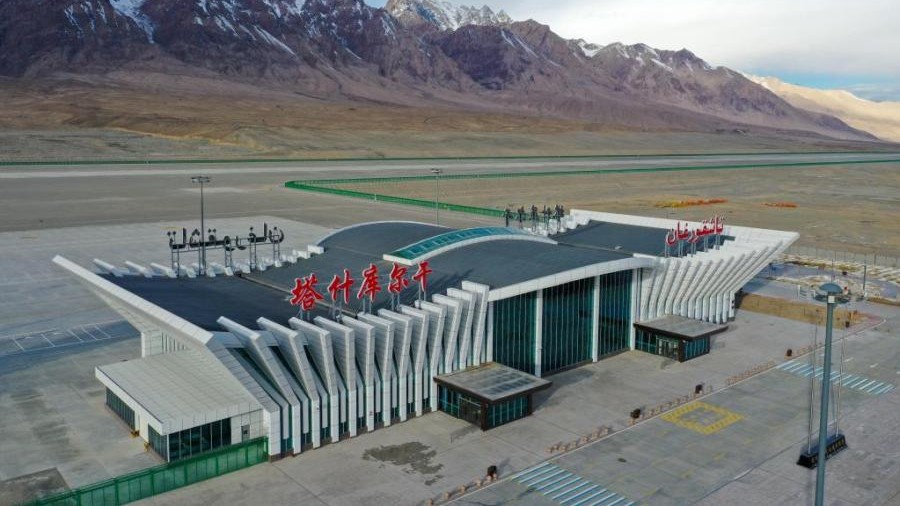

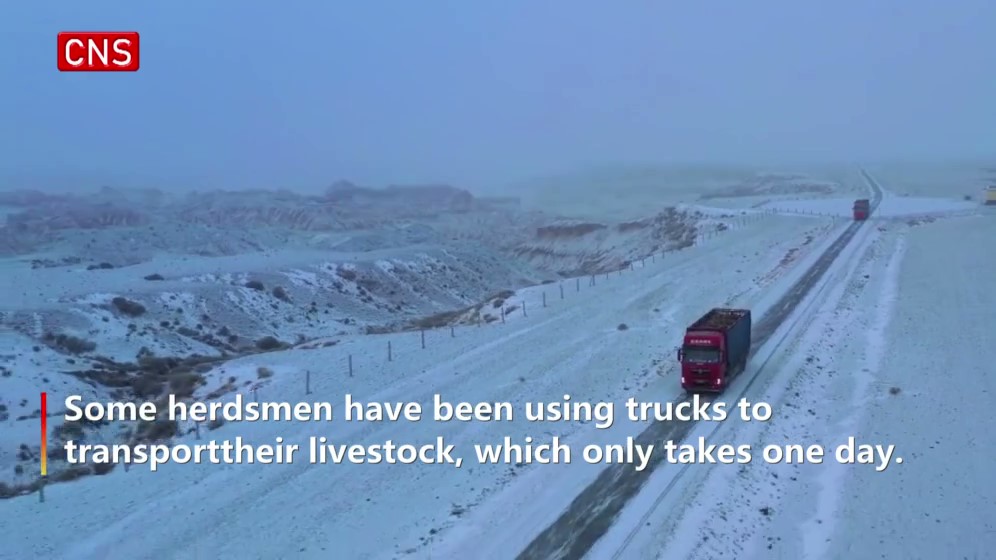
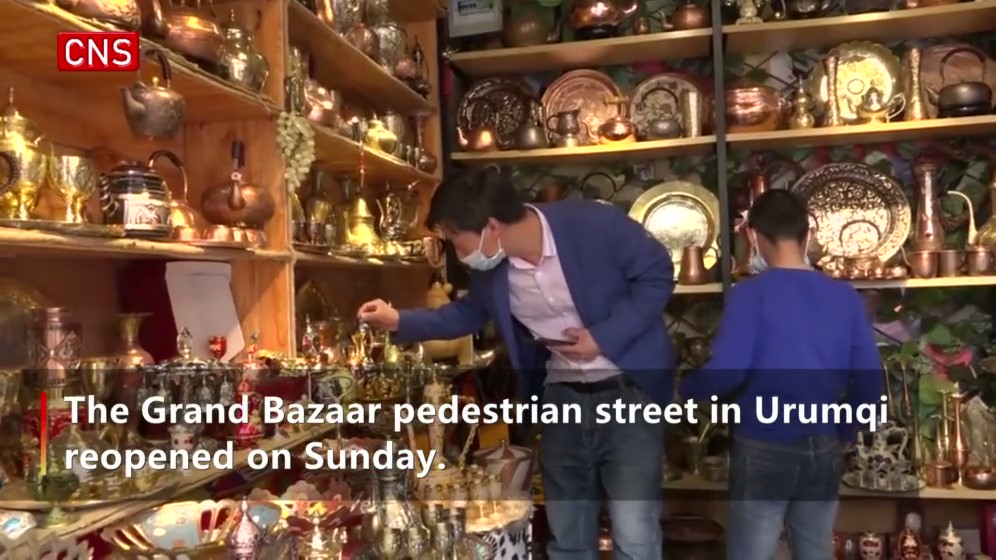

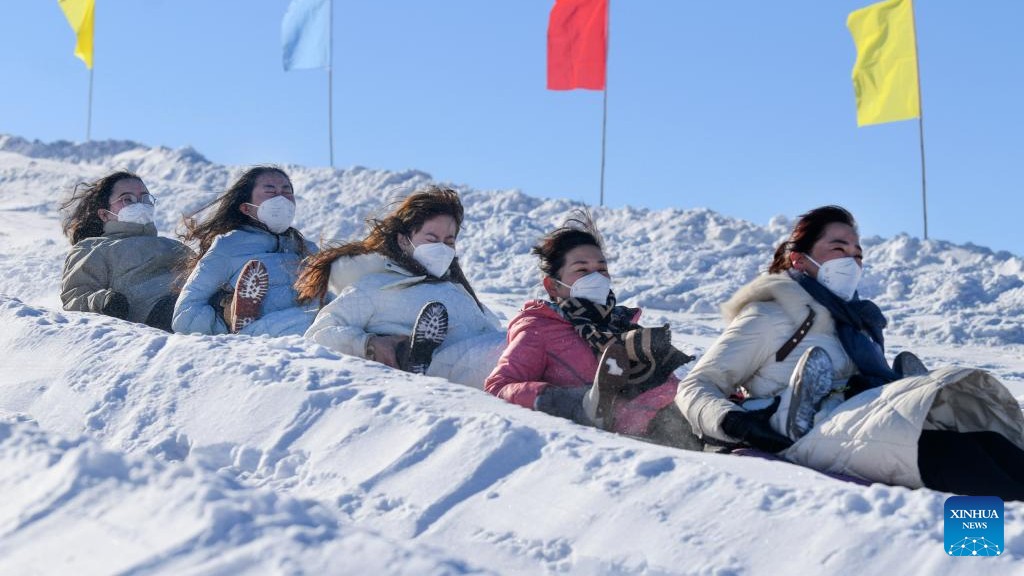


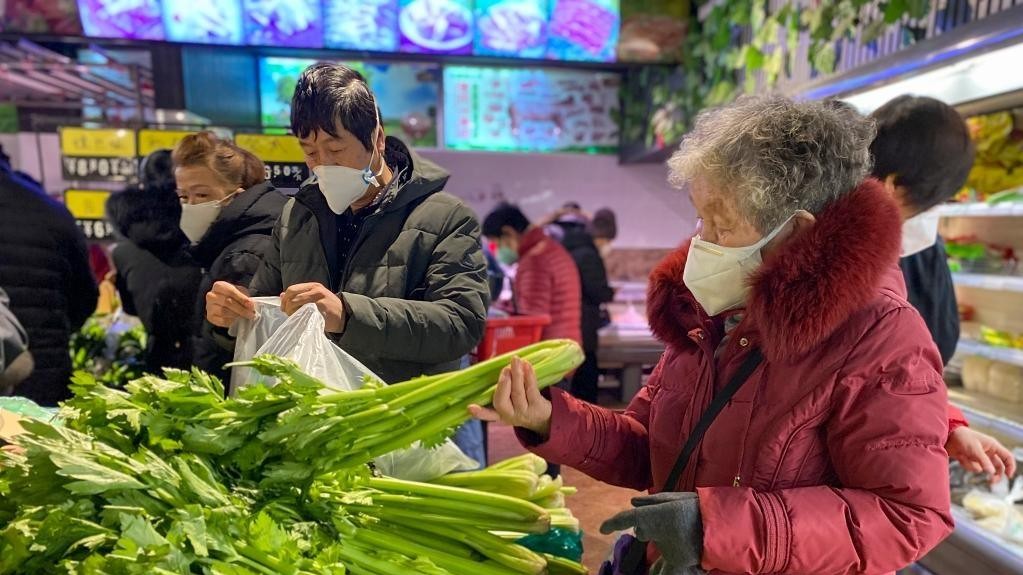

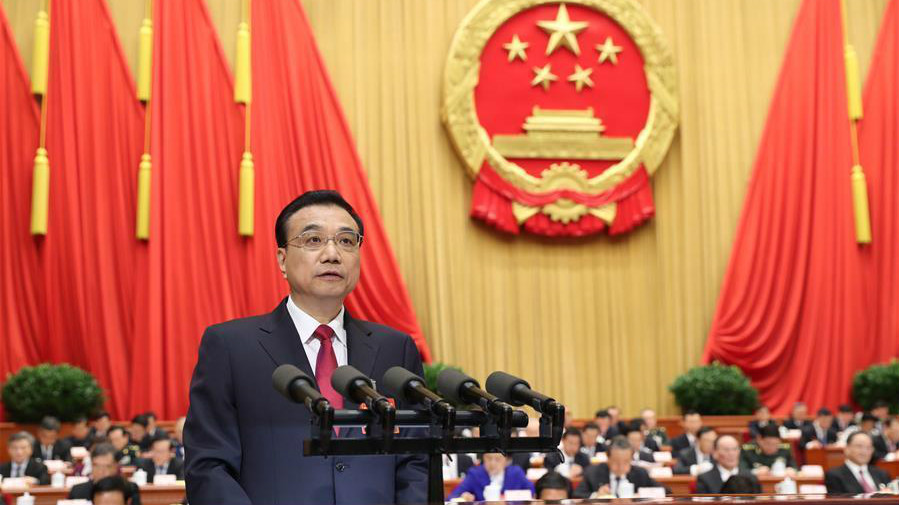

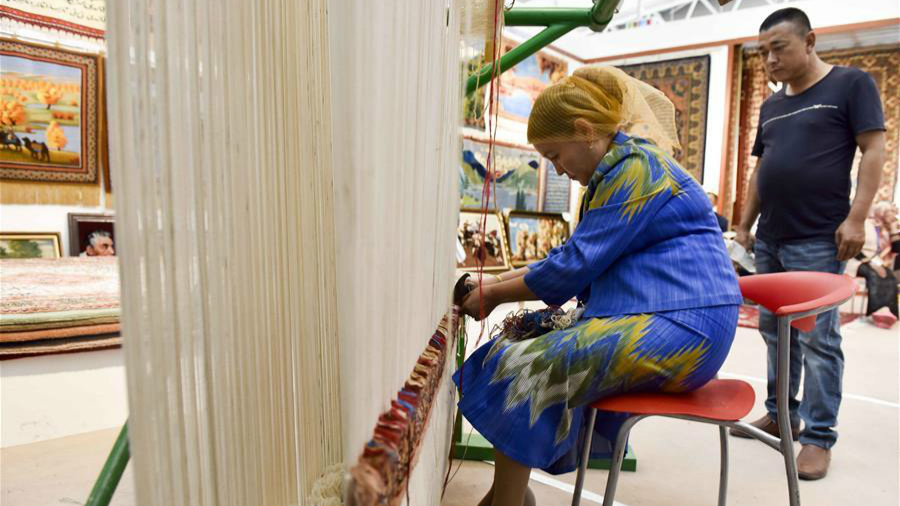
.jpg)

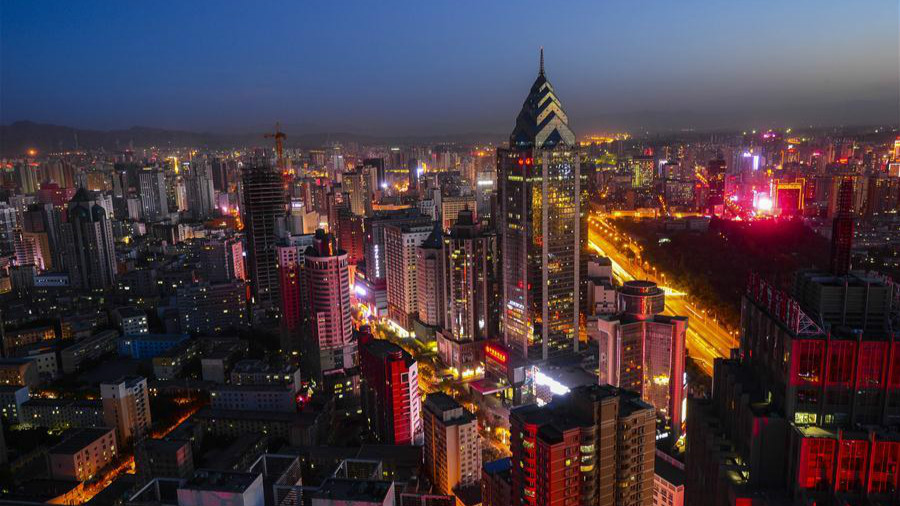
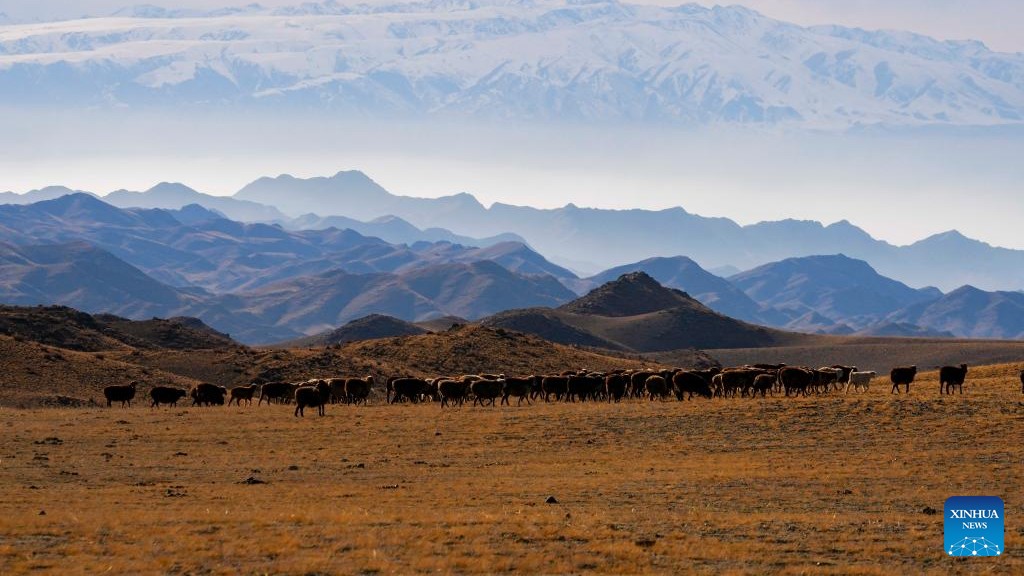

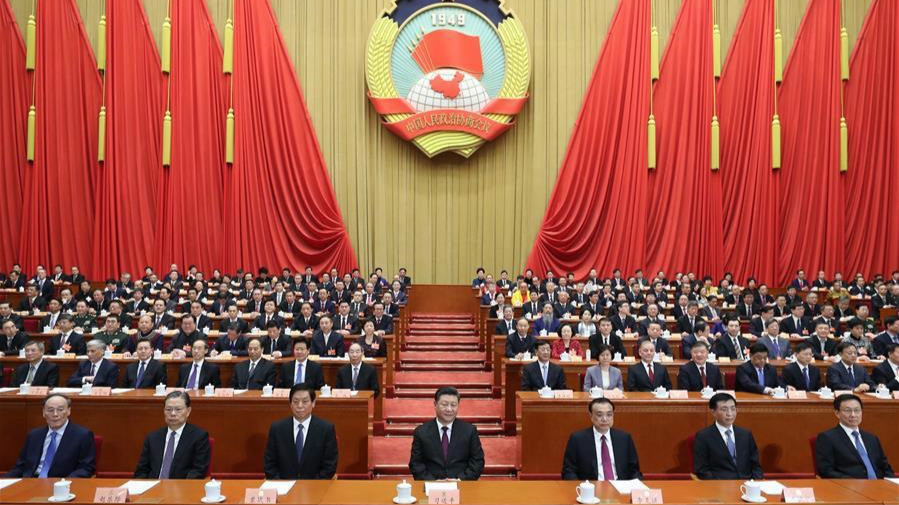
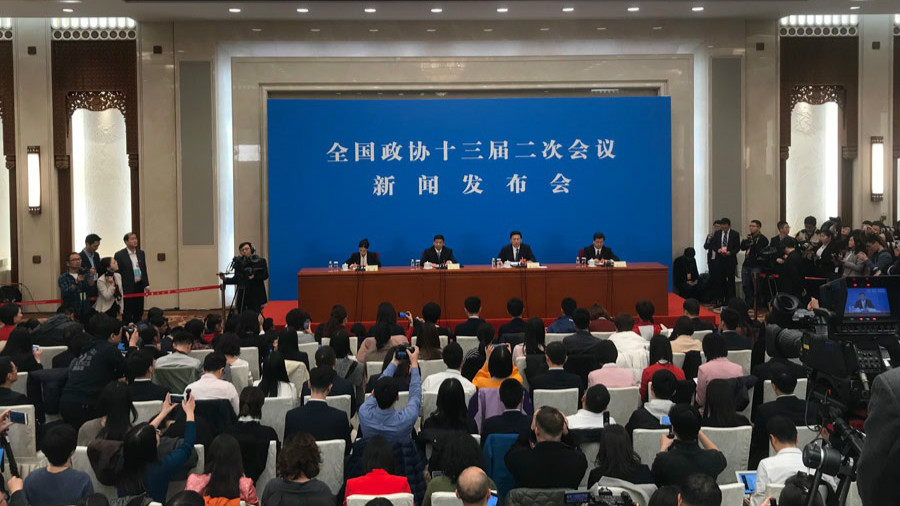
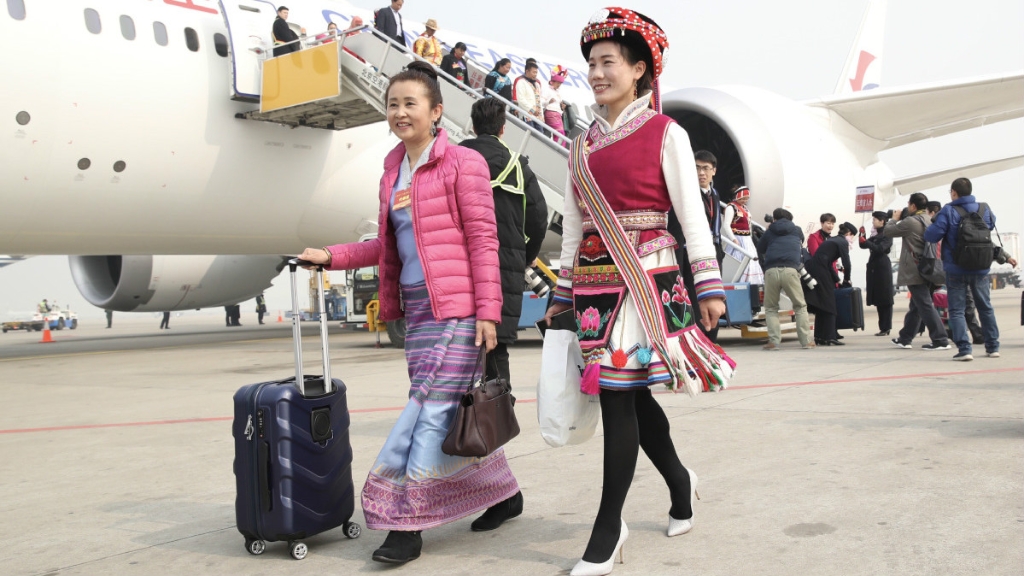
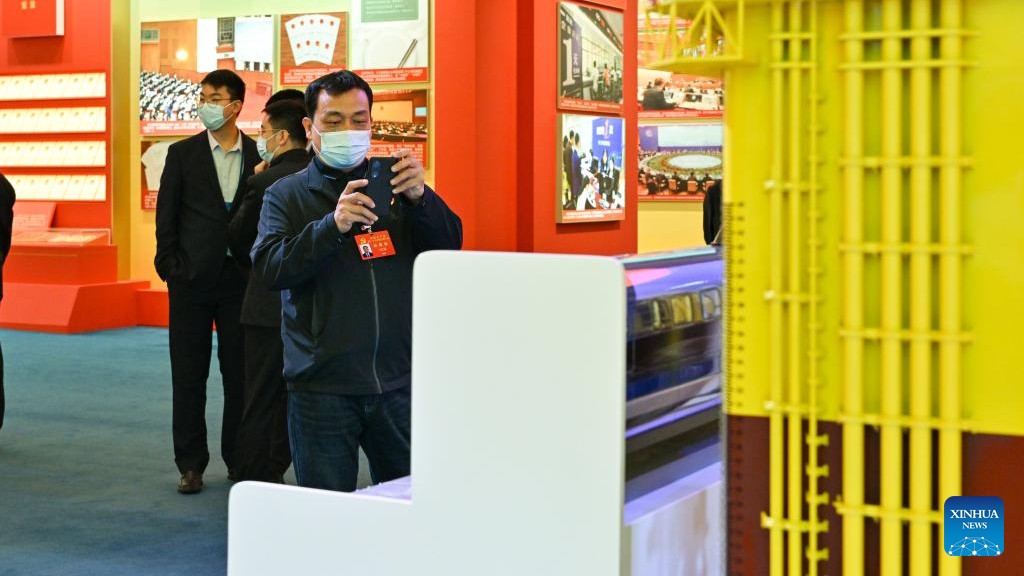
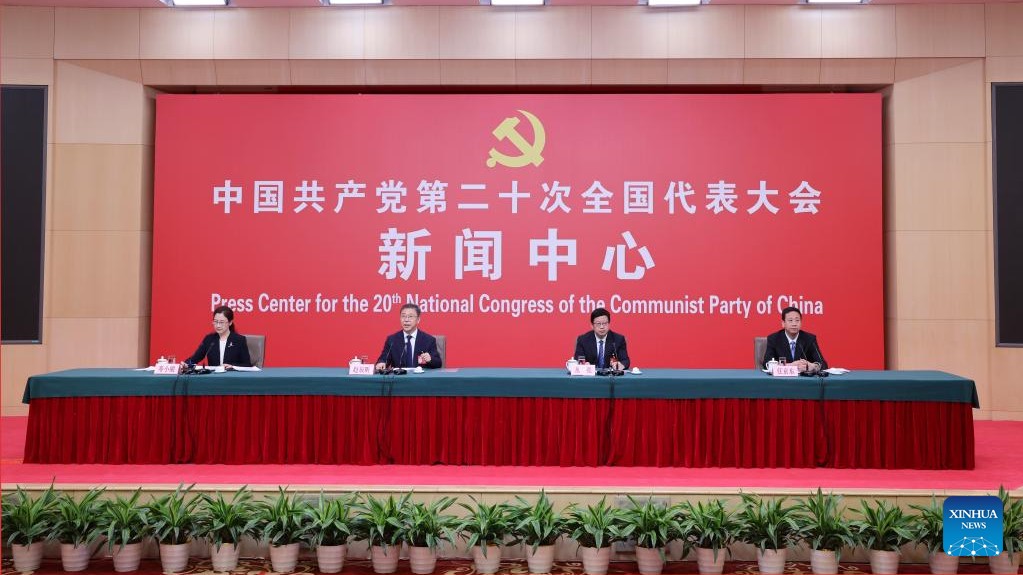
.jpg)
